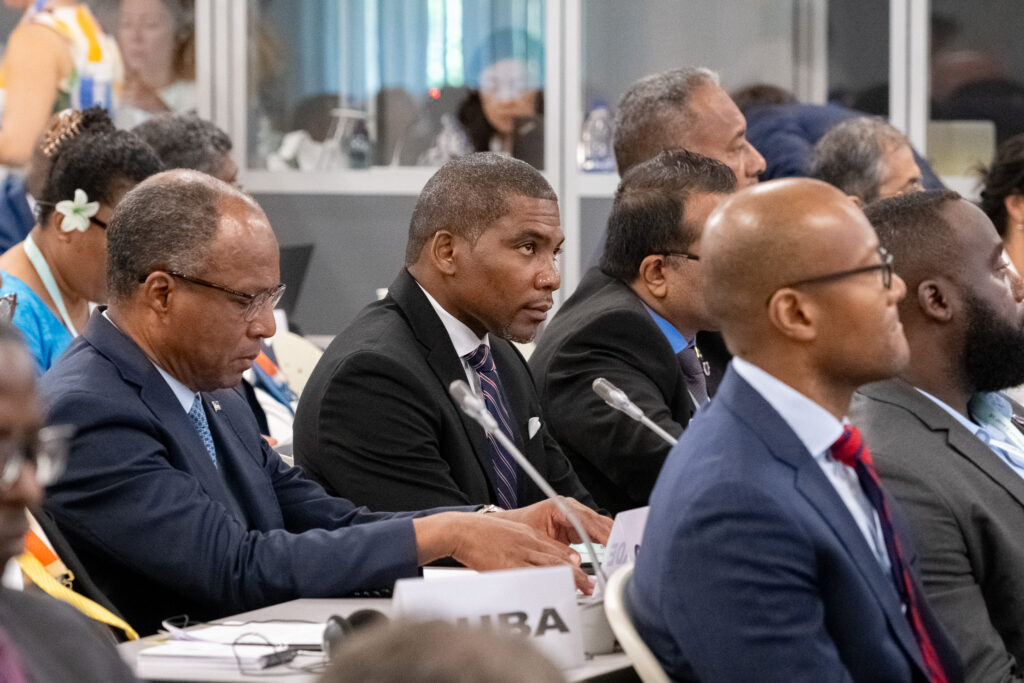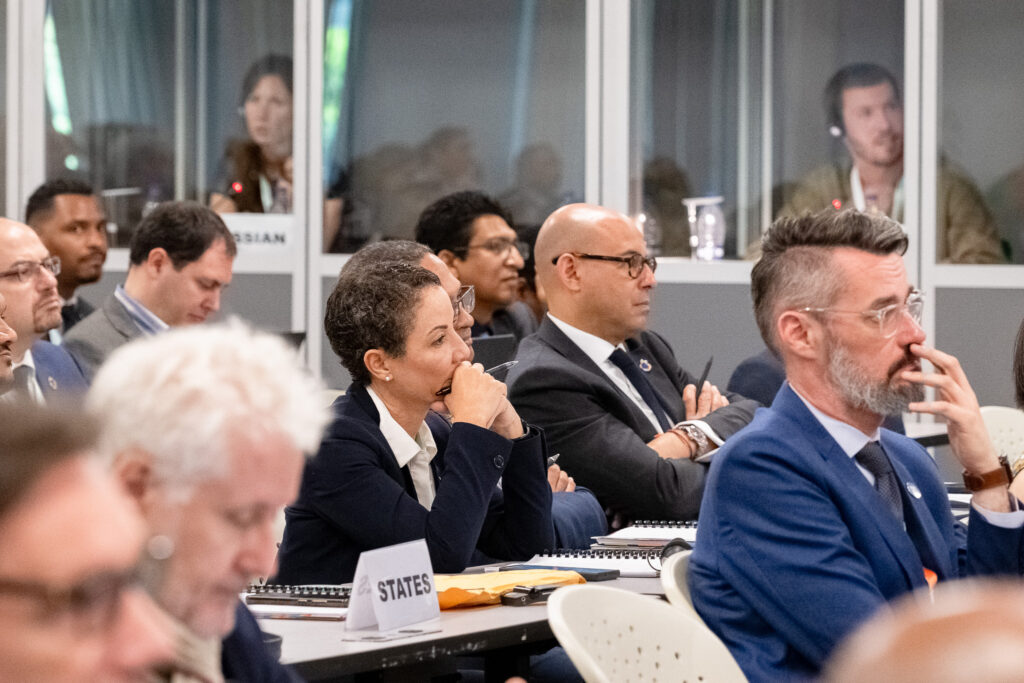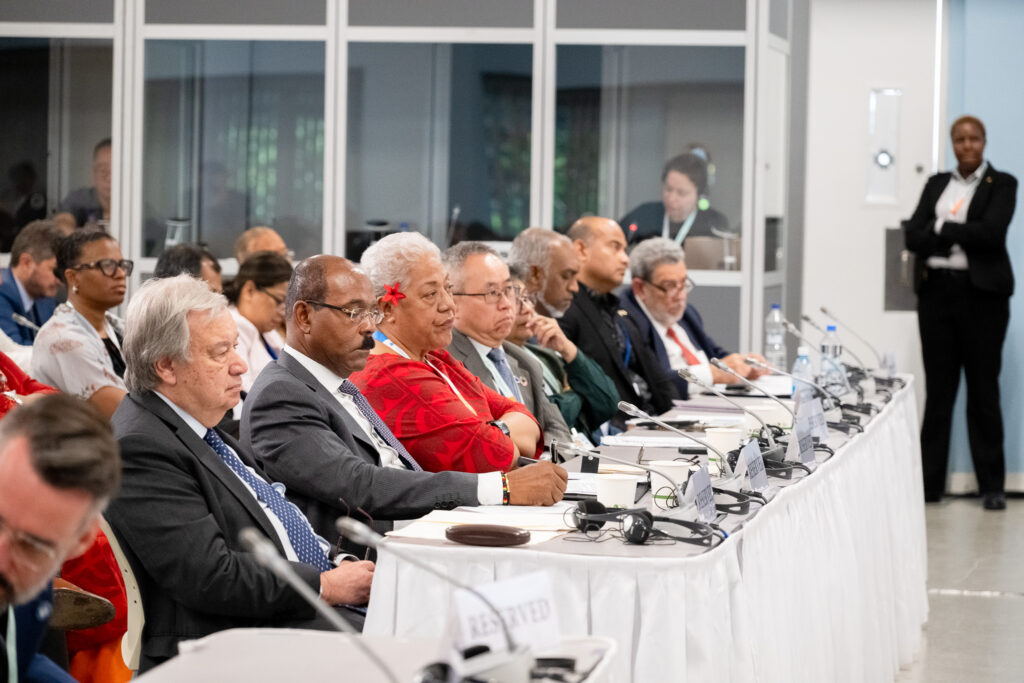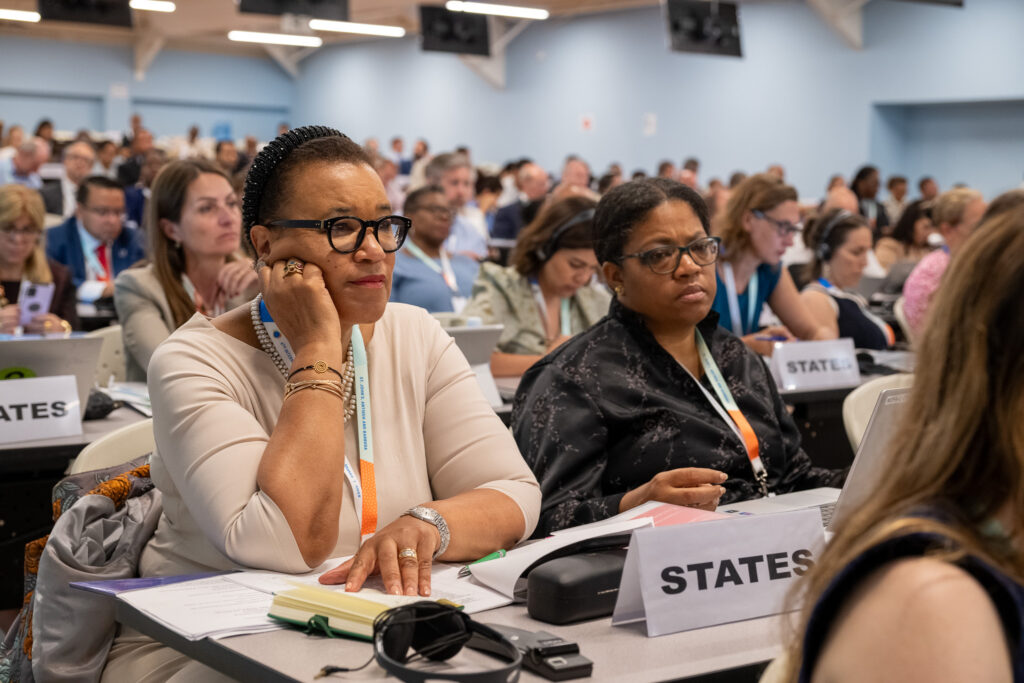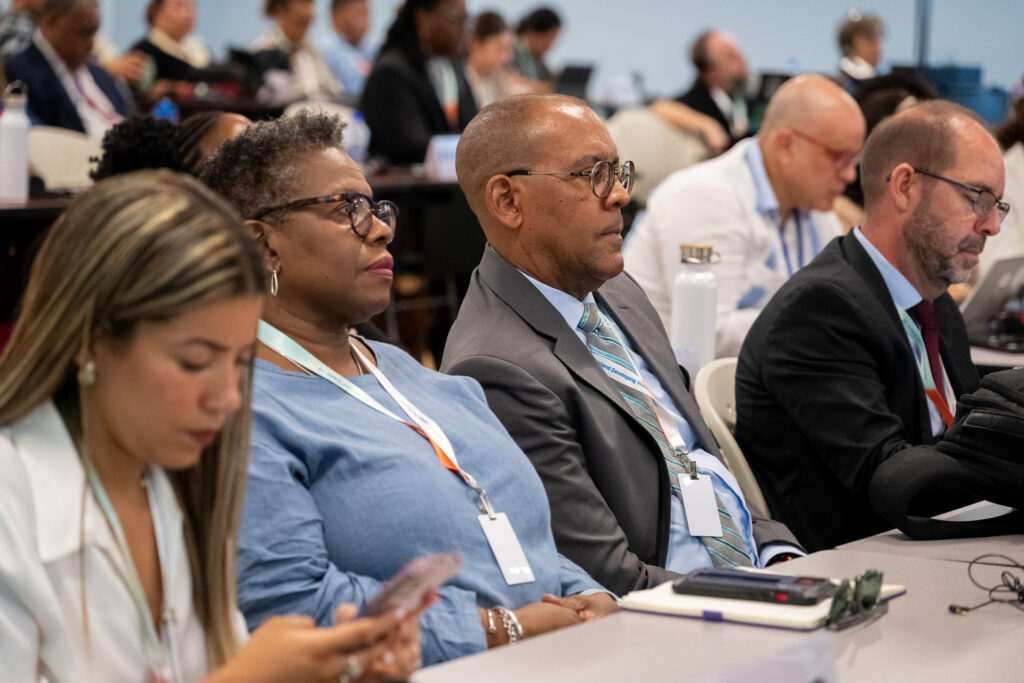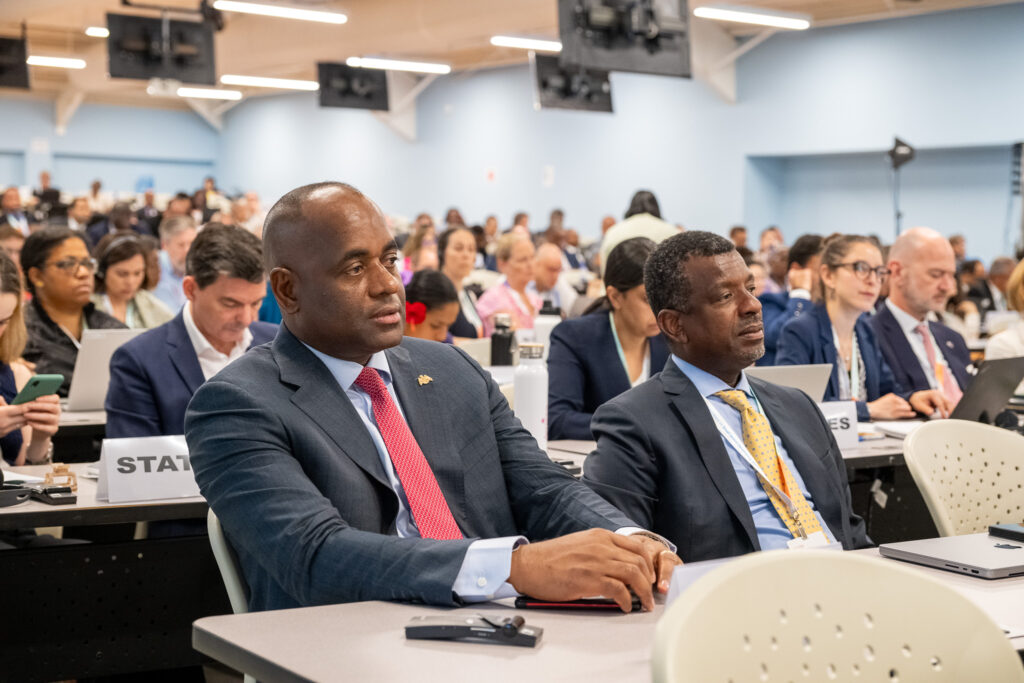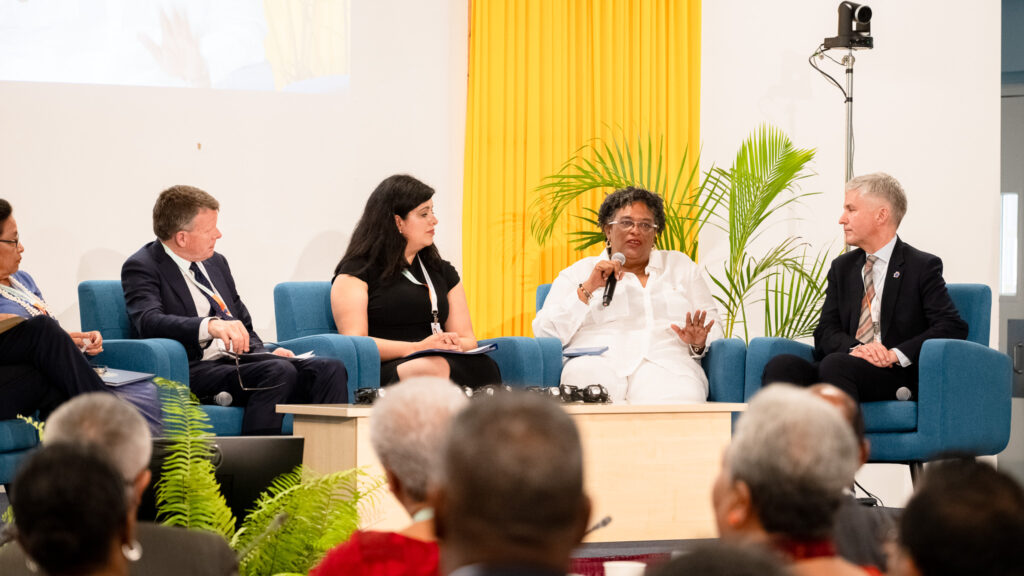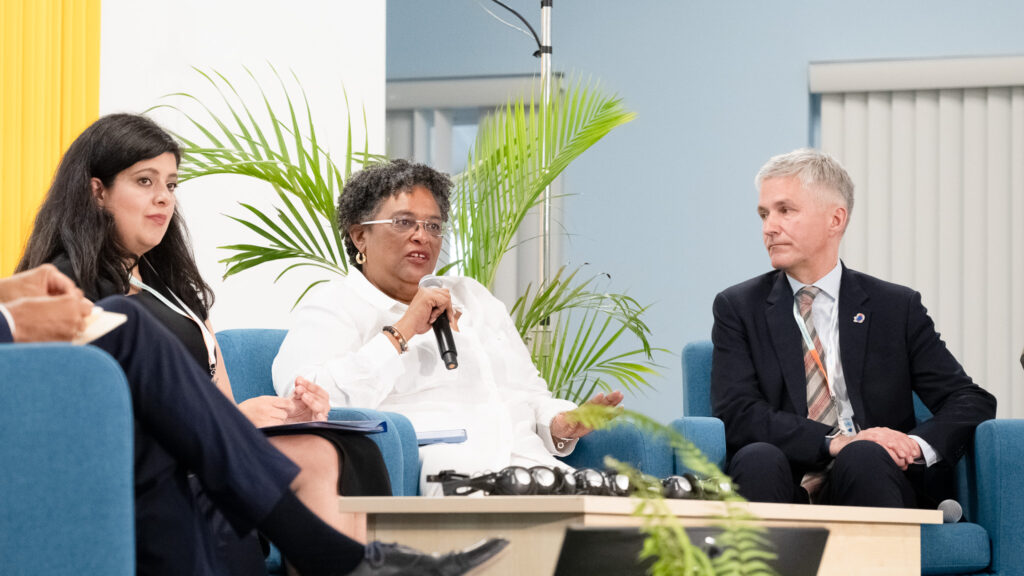May 28, 2024
Moderator: Let me ask Prime Minister Mottley, what would representation in decision-making in global financial institutions mean for all SIDS?
Prime Minister Mottley’s response:
To begin with, if we were at the table of the Board of Directors, a lot of the decisions that are being made would have to be made knowingly, recklessly, and with insensitivity to our condition. When you are not there, people can claim that they don’t know. When we have a representative of AOSIS or of SIDS generally at the level of the World Bank and at the level of the IMF, then there will be continuously a voice that can represent our conditions.
I heard you [Mr. Moutfield of the World Bank], and let me thank you, first of all, for agreeing to ensure that the natural disaster clauses are for all debt and are to be used without payment, because you can’t ask countries to pay when they are on the ground recovering from a hurricane. I want to thank the President and yourself for responding to our concerns and evolving this matter. But having said that, the reflection on the per capita instrument with respect to SIDS will always make it look as though we are getting more, because the base upon which you are comparing is so much smaller.
And to that extent, I think you need to really, really stop it, because there is an absolute need with respect to building out these economies in the next ten years. We are in a race against time, and finance is not the destination. It’s only the mechanism by which to get to the destination.
Anyone who does any coastal project will tell you that if you need feasibility studies, if you miss the particular month or two, you have to wait another year to get that particular feasibility study done. So you have ten chances to get it right if you assume that we have a decade. The reality is that we also have a problem with debt sustainability.
These countries, regrettably, are some of the highest indebted countries in the world, not because of profligacy or corruption, but because we have been carrying the costs of 1) the climate, and; 2) an inappropriate financial system that forces us to be able to stock up debt and pay it off fast. That is why we call now for a removal of the surcharges in the IMF system. That’s why we call for the IMF to recognize that the extended fund facility can’t be a four-year facility.
That’s why we call for the international capital markets and the IFIs to recognize that development must at least give people who benefited from the investment the time to be able to come and to pay back. So all we’re doing, Courtney is saying the same thing, round and round and round. We need longer-term money.
We need cheaper money. We need a different framework for debt sustainability, and with all due respect, the common framework is not working. It cannot be said to have worked for Zambia, it’s not working for any country.
We need to be able to re-examine these things, not because we want to hear our voices, but because we live it every day. The Prime Minister of Samoa made the point. You’re asking people to choose between debt service and education and health.
My country showed it. I inherited a country six years ago that was the third most indebted country in the world debt GDP per capita. GDP per capita.
When we brought it down within 19 months. But if I’m allowed, or if I’m prevented, rather, from being able to invest in education and health care, and I end up with a crime problem, it takes me a generation to recover from a crime problem. It takes me a generation to recover from social implosion, but I can recover from debt restructuring overnight.
And if we don’t recognize that we are playing with fire, we’re not going to have the people to rebuild these economies and to keep these societies stable. And if we don’t have it, tell me where they’re going to end up.
